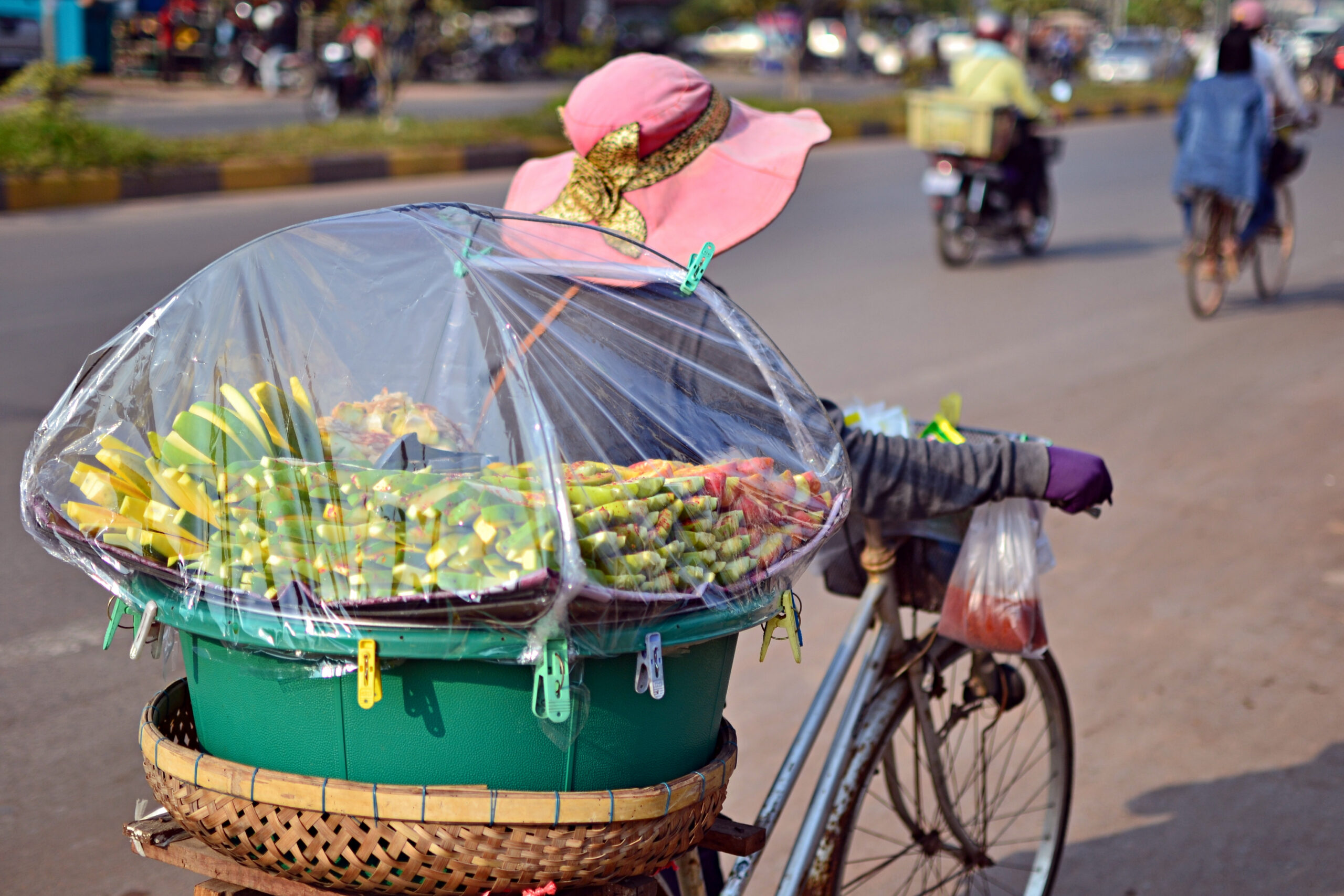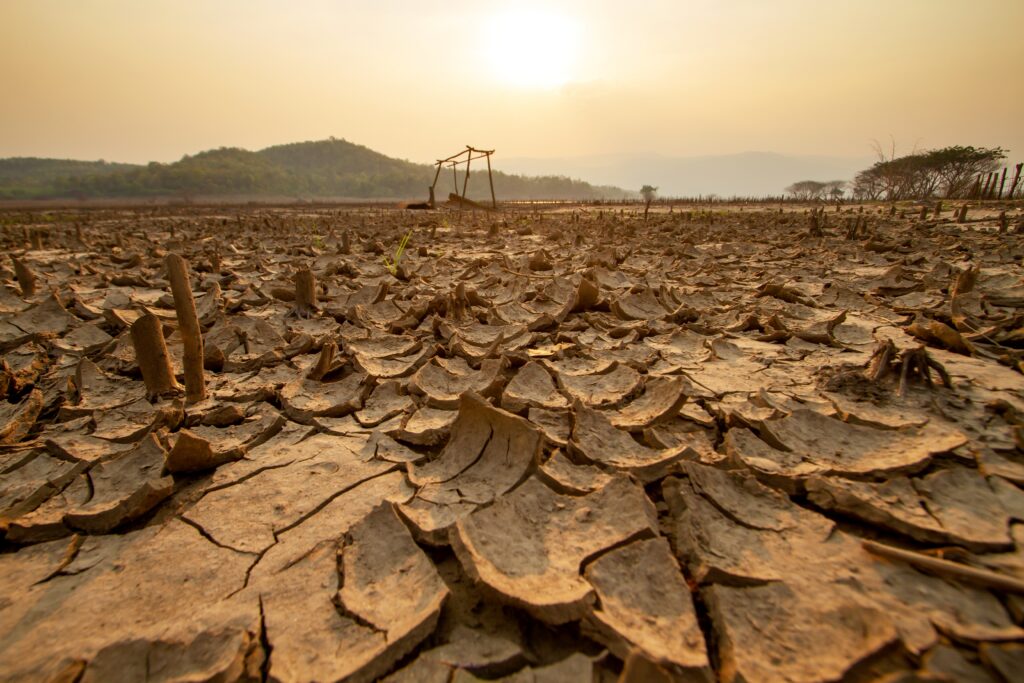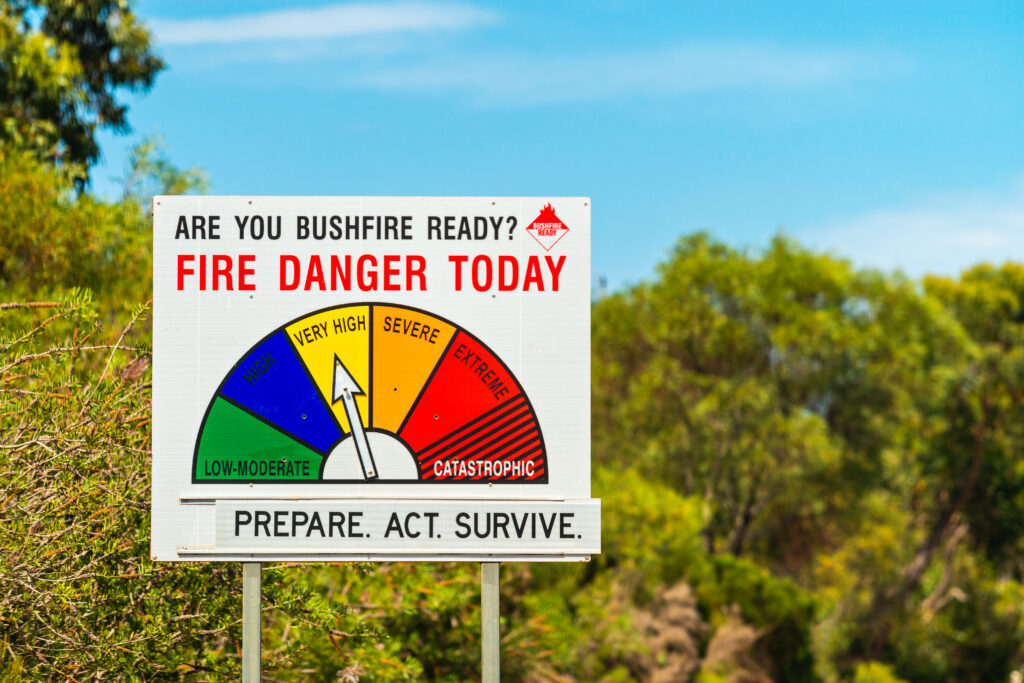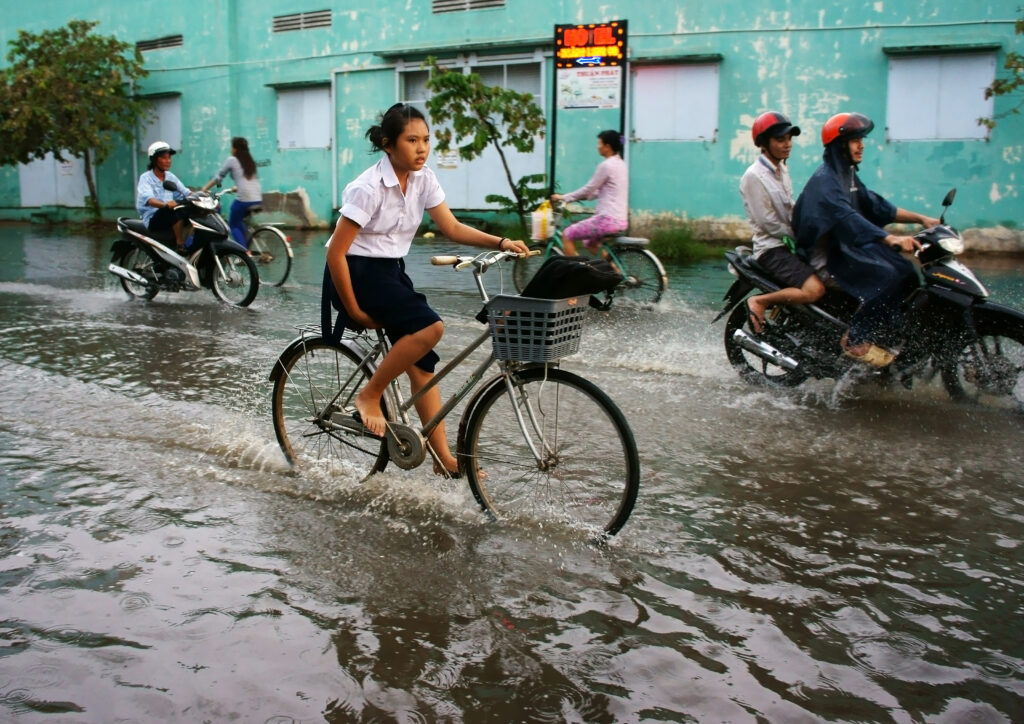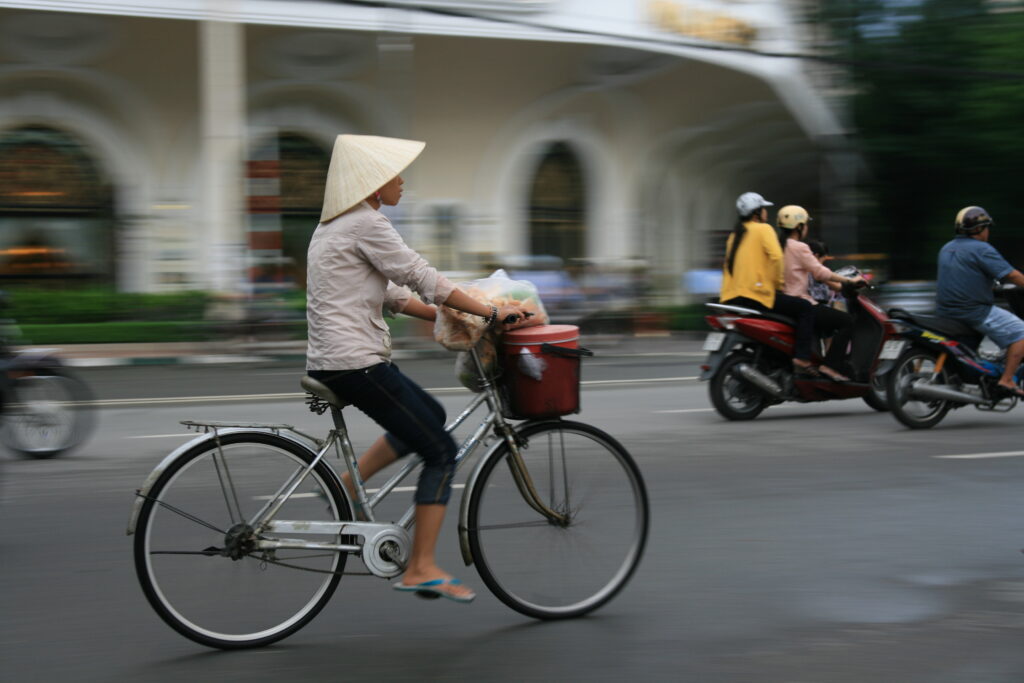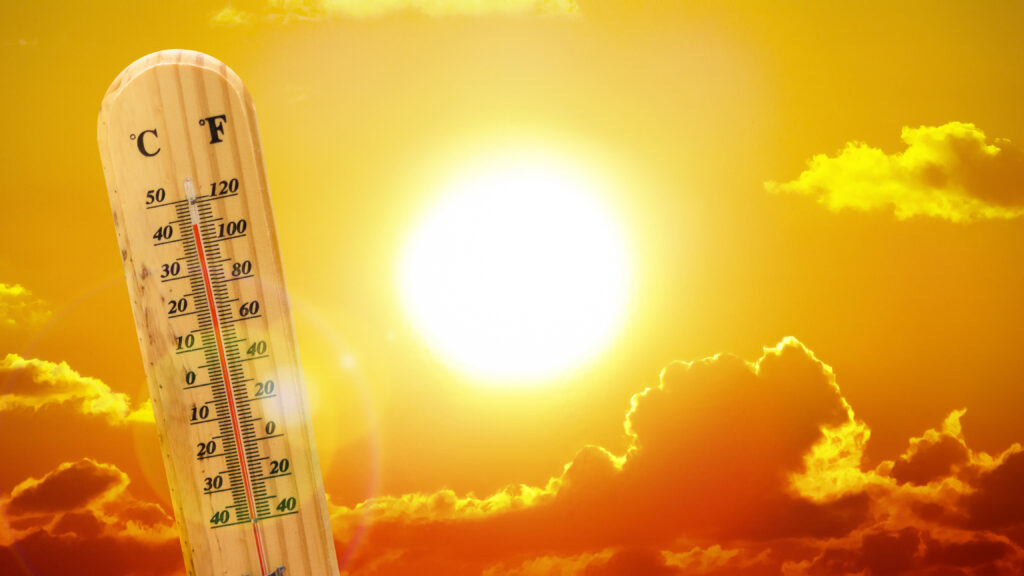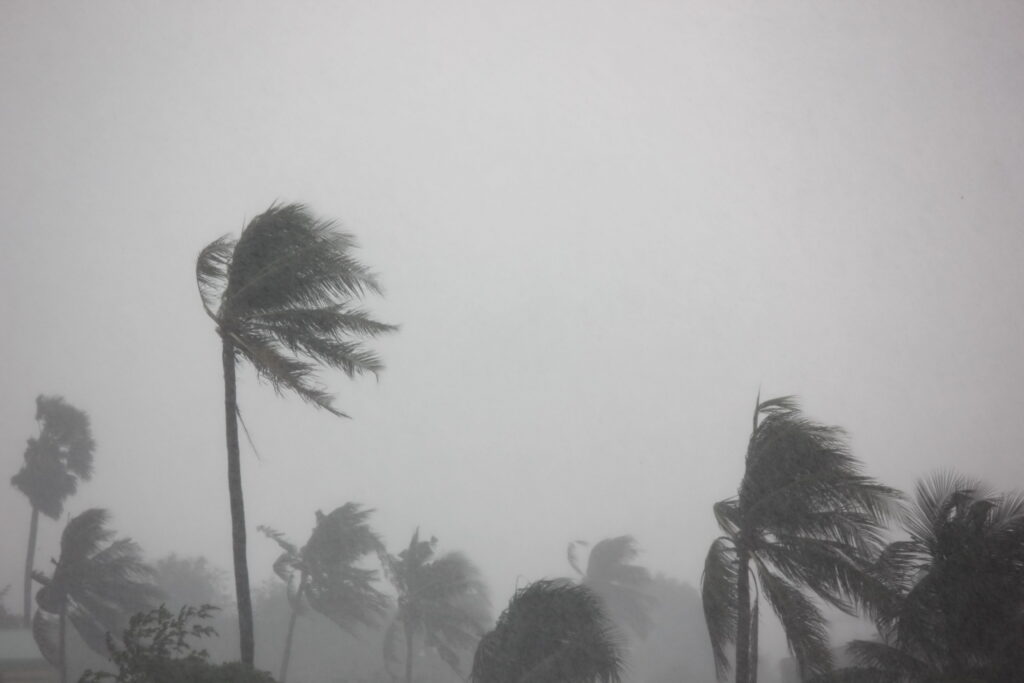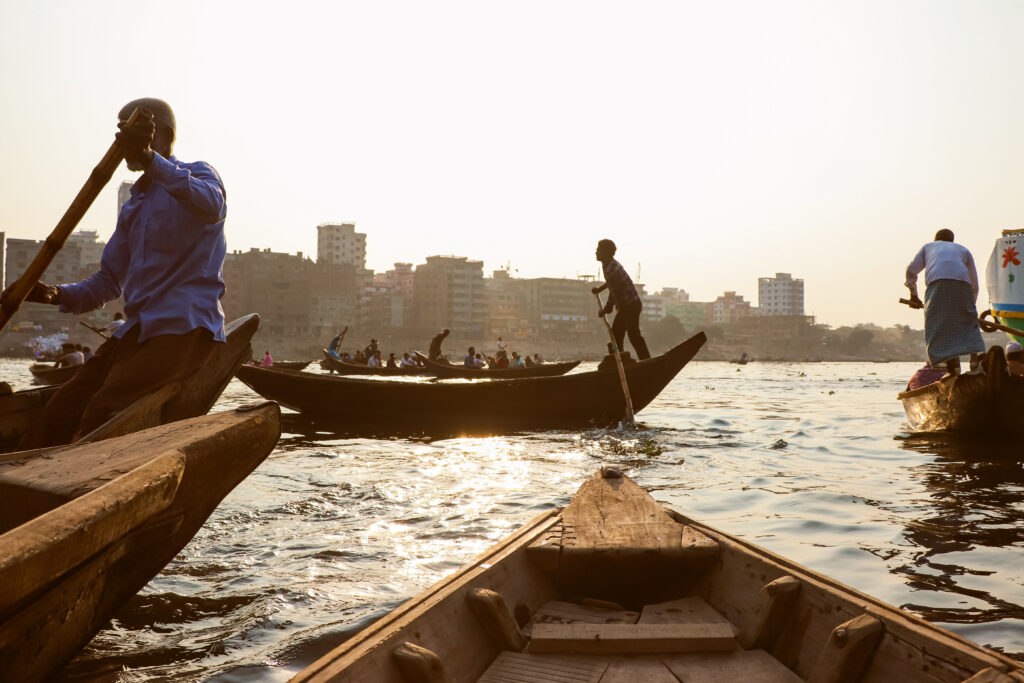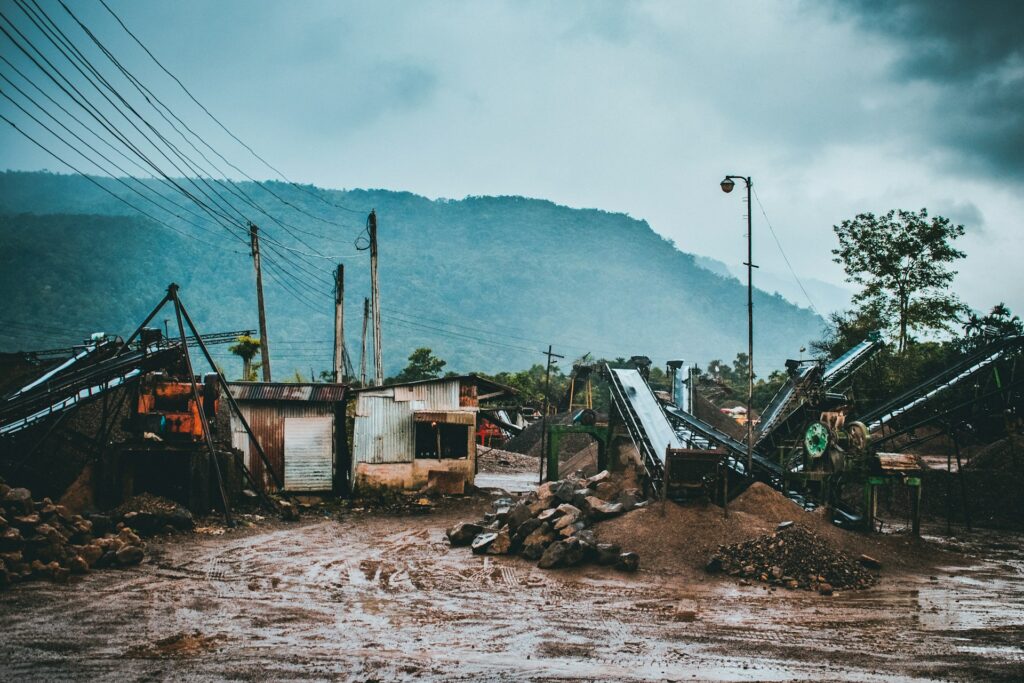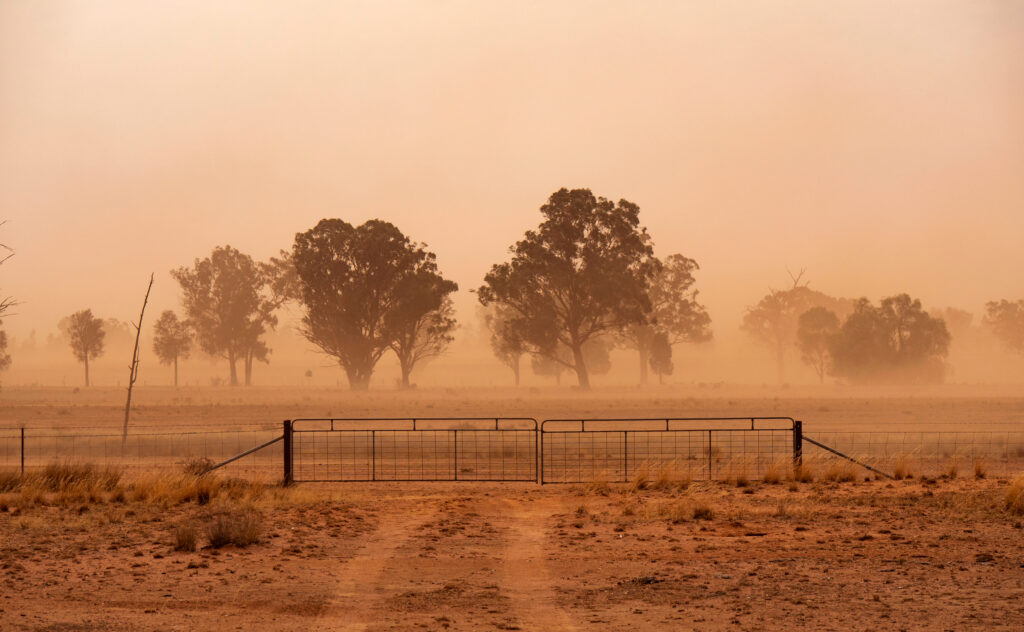A new report by Streetnet International and Oxfam highlights the numerous impacts of climate change on street vendors in Southeast Asia. The first-of-its-kind report found that vendors in Cambodia, Laos and Vietnam are grappling with extreme heat, floods, typhoons and other climate-related risks that are wiping out their incomes and jeopardising their health.
Climate change and extreme weather events, including rising temperatures, increased rainfall, flooding and storms, are affecting communities and economies worldwide. Street traders are among the most vulnerable groups affected by these changes, as their income and well-being rely on outdoor labour and informal employment. While their livelihoods can be significantly affected by climate change, they often lack protection and support when facing these challenges.
Informal Street Vendors Provide Vital But Unappreciated Work
In Cambodia, Laos, Vietnam and throughout Southeast Asia, informal street vendors play a vital role in the urban economy. Street vending provides affordable food for lower-income urban populations and serves as a key source of livelihood, particularly for women to support their families. Despite their essential role in promoting food security for communities across much of Asia, street vendors are among the informal workers whose vital contributions to national economies often go unrecognised.
On the Front Line of Climate Extremes
Asia is one of the world’s most climate-vulnerable regions, with its long coastlines and densely populated low-lying areas at high risk from rising sea levels. The continent is highly disaster-prone and is warming nearly twice as fast as the global average. In 2024, record land and sea temperatures affected vast areas of Asia, driving more extreme weather and posing serious threats to lives, ecosystems and economies.
The report focused on the localised climate impacts on vendors and their livelihoods. It found that in Cambodia, flash floods and extreme heat are the most significant climate risks. Flash floods can lead to a decline in business of up to 50% on days of heavy rainfall, causing damage to goods and disrupting business operations. Meanwhile, rising temperatures can increase operating costs and cause fresh produce to spoil. Extreme heat, particularly in urban areas such as Phnom Penh, also increases the risk of heat-related illnesses.
In Laos, where 90% of women work as food and beverage street vendors, erratic rainfall, flooding and fluctuating temperatures reduce customer traffic, disrupt sales and damage goods. For vendors in Vietnam, the report identified typhoons, heatwaves and tidal surges as the main threats. Typhoons and flooding cause significant damage to goods and equipment, while exposure to extreme heat can lead to illnesses such as heatstroke, dehydration and fatigue.
The Unequal Impacts of Climate Change and Health Risks
Due to systemic vulnerabilities, these climate and extreme weather events have a significant impact on the livelihoods, health and well-being of street vendors. Many of these vendors live day-to-day, so being unable to sell for even a morning, day or week can set them back considerably. Moreover, their outdoor working conditions and lack of recognition as workers prevent them from accessing protection measures and subsidies, leaving them to cope alone in the aftermath of climate disasters.
The report also identified that women street vendors face additional vulnerabilities and are subsequently disproportionately impacted. In all three countries, women vendors face added risks due to caregiving responsibilities, limited mobility and physical vulnerabilities. They also experience heightened risks from heat-related illnesses and are often more severely impacted by extreme heat and flooding, which complicate the transportation of goods and management of their businesses. Additionally, household responsibilities can further hinder their ability to recover from climate-related disruptions.
Weathering the Storms
To cope with these multiple challenges posed by heat stress, floods and other climate-related events, the report identified a range of strategic adaptation measures that vendors are themselves implementing. These include buying materials to protect merchandise, adjusting product offerings to fit weather demands and using savings to cover losses. Informal support networks, including assistance from family, friends and street vendor unions, also help vendors manage financial shortfalls.
However, these support systems are often limited and insufficient, and can lead to reduced well-being and financial instability. In all three countries, vendors face a lack of formal or targeted government assistance for climate-related challenges. As a result, they are left vulnerable to extreme weather events and trapped in a cycle of poverty, with little external support to help them recover.
Recommendations To Strengthen Climate Resilience and Environmental Sustainability
Due to the shortfall in official support or protections, the report calls for strengthened recognition of street vendors as economic entrepreneurs, ensuring they have the resources and protections necessary to thrive amid worsening climate impacts. The researchers identify key solutions and endorse a holistic approach that includes establishing designated vending areas equipped with basic infrastructure such as clean water and electricity and formalising and legalising street vending to allow access to social protection and government services.
Vocational training and business development programs can help vendors enhance their skills, while financial assistance — such as cash grants or microfinancing — should be provided to support their recovery from extreme events. The report also endorses a gender-sensitive approach to ensure that policies address the specific vulnerabilities and needs of women, including childcare support and mobility assistance.
Street vendors are highly vulnerable to the impacts of climate change and have long been an underserved and underrecognised group. The researchers emphasise that these targeted measures are essential to build resilience and improve their daily lives, ensuring they can withstand the growing impacts of climate change and continue their vital work supporting families and communities across Asia.
Evelyn Smail
Writer, United Kingdom
Evelyn is a freelance writer and journalist specialising in climate science and policy, the just energy transition and the human impacts of climate change. She writes for independent publications, NGOs and environmental organisations. Evelyn has a background in sustainable development, climate justice and human rights.
Evelyn is a freelance writer and journalist specialising in climate science and policy, the just energy transition and the human impacts of climate change. She writes for independent publications, NGOs and environmental organisations. Evelyn has a background in sustainable development, climate justice and human rights.

